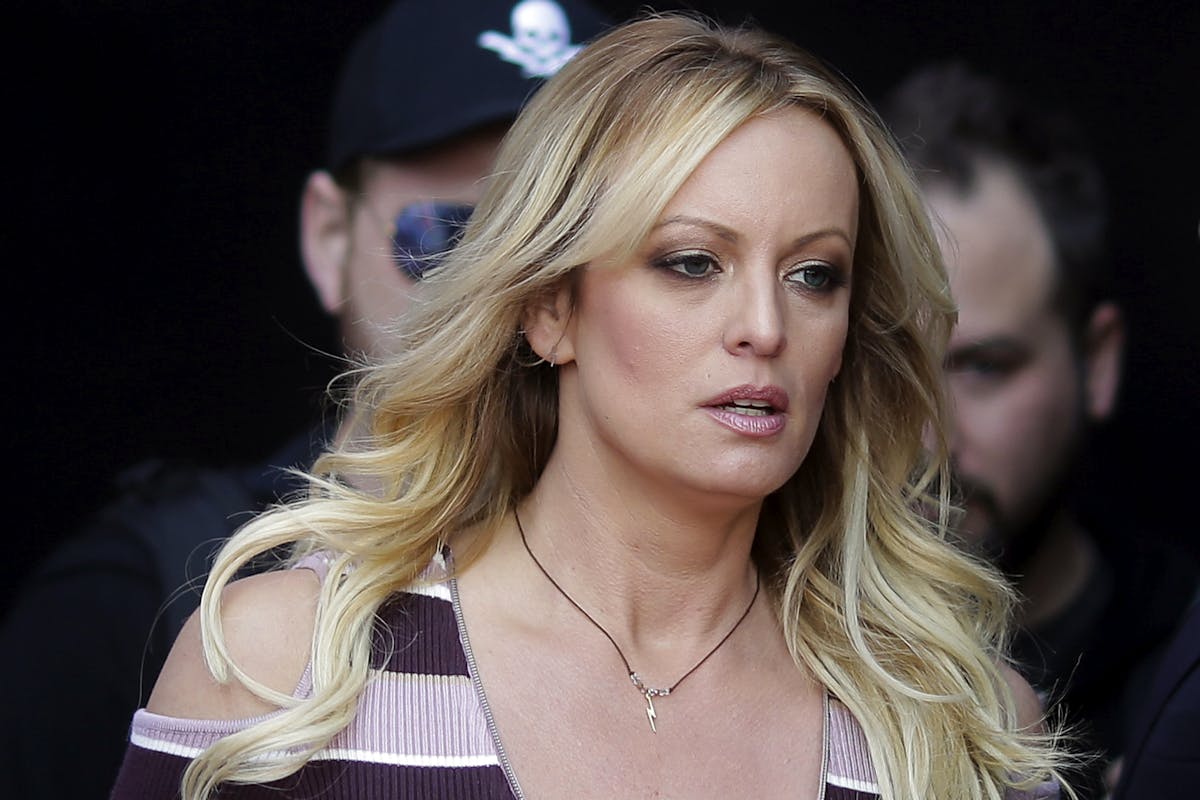Porn Star Case Against Trump Due To Take Off: Could Bragg Be First Prosecutor To Win a Conviction?
Sometimes seen as the weakest of the four criminal cases against the 45th president, the one brought by New York could have the clearest path to a conviction.

A high-stakes hearing in New York state court on Thursday will determine if the hush money criminal case against President Trump, regarding secret payments to a porn star, Stormy Daniels, is relegated to the dustbin of history or locked into the calendar.
If Judge Juan Merchan does not dismiss the case, as Mr. Trump has requested, then he will set a trial date. The case, brought by the district attorney of New York County, Alvin Bragg, is provisionally set for March 25. Mr. Bragg was the first prosecutor to hand up criminal charges against the 45th president.
Ten months later, with the January 6 case of another prosecutor, Special Counsel Jack Smith, snagged in appellate delay — the Supreme Court appears set to weigh the question of whether Mr. Trump is protected by immunities — it is Mr. Bragg’s case that could yield the first conviction or acquittal for the former president.
Judge Merchan, who has been in touch with the federal judge overseeing the election interference case, Tanya Chutkan, on scheduling matters, could give the green light for a New York-based trial. The Empire State has of late been a forlorn forum for Mr. Trump, who has been held liable for both defamation and fraud in two civil trials in his hometown jurisdiction.
As go the other two criminal cases against Mr. Trump, Mr. Smith’s Mar-a-Lago case also faces judicial headwinds, and the Georgia prosecution of Mr. Trump is ensnared in accusations of prosecutorial misconduct. Another hearing on Thursday, at Fulton County, could throw into sharper relief the state of play in respect of efforts to disqualify the district attorney, Fani Willis, and her special prosecutor, Nathan Wade.
Mr. Bragg tells WNYC Public Radio that his case is “about conspiring to corrupt a presidential election and then lying in New York business records to cover it up.” He has charged Mr. Trump with 34 counts of fabricating business records to hide payments to Stormy Daniels during the 2016 campaign. While that subterfuge would normally amount to misdemeanors, Mr. Bragg contends that their use for election interference transmutes them into felonies.
While running for district attorney, Mr. Bragg made no bones about his intention to pursue the former president. “I have investigated Trump and his children and held them accountable for their misconduct,” he declared. At the core of this case is $130,000 in payments to an attorney, Michael Cohen, who was once in Mr. Trump’s employ. He has since turned state’s witness.
Spurned by Mr. Trump, Cohen alleges that the $130,000 was an illegal reimbursement for payments he made out of his own pocket to Stormy Daniels, in cahoots with the National Enquirer, to keep the porn star from publicizing, during the 2016 campaign, her claims of an affair with Mr. Trump.
Cohen pleaded guilty to eight criminal counts, and served three years in prison, for the same alleged scheme over which Mr. Bragg is now prosecuting Mr. Trump. That case was initially brought by federal prosecutors, who declined to hand up charges against Mr. Trump. Mr. Bragg’s office, though, asserts that he “orchestrated his ‘catch and kill’ scheme through a series of payments that he then concealed through months of false business entries.”
With Mr. Smith’s March 9 trial date now officially vacated, the field appears clear for Mr. Bragg’s case to move ahead. Mr. Trump argues that it should not, for two reasons. First, he points to Mr. Bragg’s longstanding antagonism to the former president to bolster his claim of “selective prosecution.” Second, he claims that because the district attorney alleges violations of federal election law, the indictment oversteps Mr. Bragg’s purview.
Mr. Bragg’s case has come in for criticism. One law professor, Jed Shugerman, calls it “a disaster” and a “setback for the rule of law.” He judges it to be a “political prosecution still in search of a legal theory.”
The district attorney, though, scored a victory when a federal judge, Alvin Hellerstein, rebuffed Mr. Trump’s effort to move the case to federal court. That jurist wrote that “hush money paid to an adult film star is not related to a President’s official acts.”

